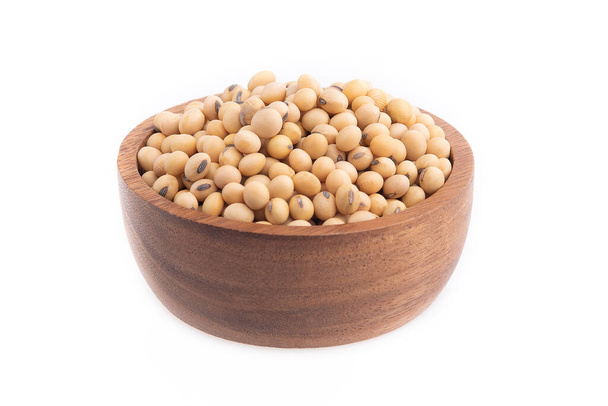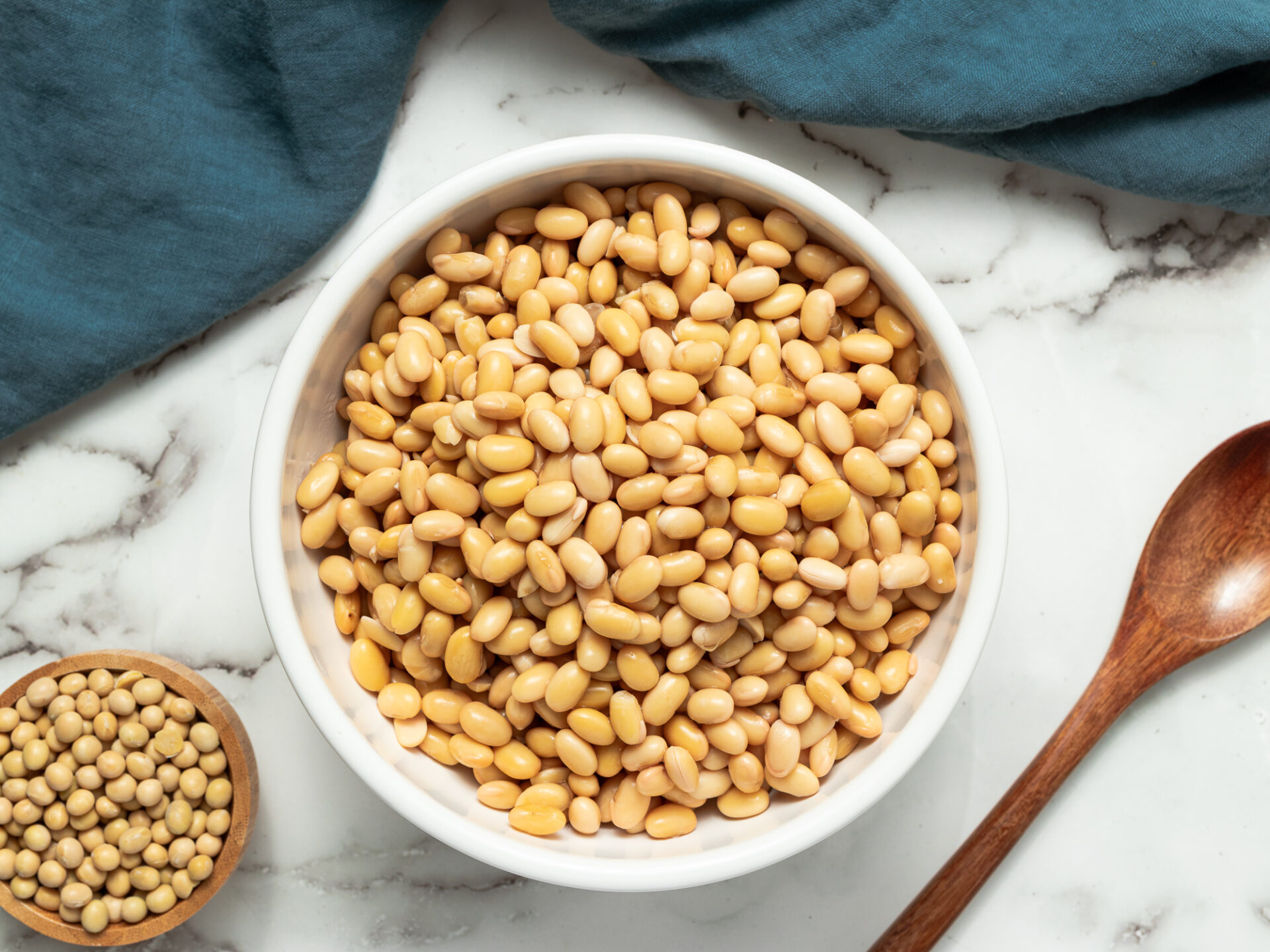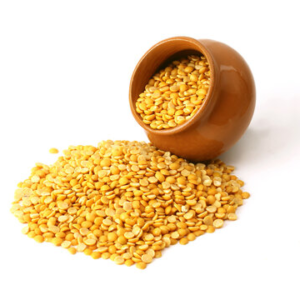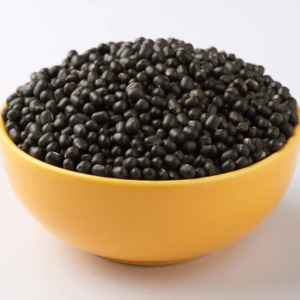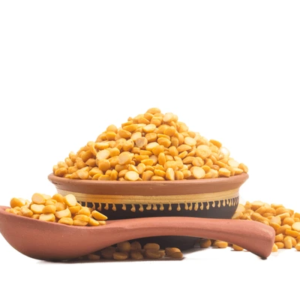Description
Soybeans are harvested from the soybean plant, a legume that is primarily cultivated for its seeds. The seeds can be consumed in various forms, including whole beans, tofu, tempeh, soy milk, soy protein isolate, and oil. Soybeans are rich in protein, fiber, and heart-healthy fats and are used in many food products, including meat substitutes, dairy alternatives, and snack foods.
Soybeans are also processed into soy flour, which is used in baking and cooking, as well as soy-based oils that are used for cooking and in the production of various products.
Nutritional Profile of Soybeans:
Soybeans are a highly nutritious food with a well-rounded nutrient profile. A 1-cup serving of cooked soybeans (approximately 172 grams) contains:
- Protein: Approximately 28 grams of protein, making soybeans one of the best plant-based sources of protein.
- Healthy Fats: Soybeans contain 15 grams of fat, including heart-healthy polyunsaturated fats such as omega-3 and omega-6 fatty acids.
- Carbohydrates: Approximately 17 grams of carbohydrates, including 6 grams of dietary fiber.
- Vitamins: Soybeans are rich in B-vitamins, particularly folate (B9), thiamine (B1), and riboflavin (B2). They also contain Vitamin K, which is important for blood clotting and bone health.
- Minerals: Soybeans are an excellent source of several important minerals, including calcium, iron, magnesium, potassium, and phosphorus.
- Antioxidants: Soybeans contain various antioxidants, such as isoflavones (phytoestrogens), which have been linked to various health benefits.
Health Benefits of Soybeans:
1. High-Quality Plant-Based Protein:
Soybeans are one of the few plant-based foods that provide all nine essential amino acids, making them a “complete” protein. This makes soybeans an excellent protein source for vegetarians, vegans, and those looking to reduce their animal protein intake. Including soy in the diet can help support muscle growth, repair tissues, and maintain healthy immune function.
2. Heart Health:
Soybeans are known for their heart-healthy benefits. They are rich in polyunsaturated fats, particularly omega-3 fatty acids, which are known to reduce the risk of cardiovascular diseases by lowering LDL cholesterol levels. Soy protein has also been shown to lower cholesterol levels and reduce blood pressure, which helps improve overall heart health. The fiber in soybeans further supports heart health by lowering cholesterol and improving circulation.
3. Menopause Symptom Relief:
Soybeans are an excellent source of phytoestrogens, particularly isoflavones, which are plant compounds that mimic the action of estrogen in the body. These compounds have been shown to help alleviate some menopause symptoms, such as hot flashes, mood swings, and night sweats. Consuming soy-based foods like tofu or soy milk may be particularly beneficial for women going through menopause.
4. Bone Health:
Soybeans contain calcium, magnesium, and phosphorus, all of which are important minerals for bone health. In addition, the isoflavones in soy may help improve bone mineral density and reduce the risk of osteoporosis, especially in postmenopausal women. Regular consumption of soy products can help maintain healthy bones and prevent bone loss over time.
5. Supports Weight Management:
Soybeans are rich in protein and fiber, which contribute to feelings of fullness and satiety. This can help prevent overeating and aid in weight management. Soy protein is also low in fat and calories, making it a great option for people looking to lose or maintain weight. Furthermore, the fiber content in soybeans helps improve digestion and regulate blood sugar levels, both of which are beneficial for weight control.
6. Supports Digestive Health:
Soybeans are high in dietary fiber, which supports healthy digestion and regular bowel movements. Fiber helps prevent constipation, improves gut motility, and promotes the growth of beneficial bacteria in the gut. This contributes to a healthy digestive system and may reduce the risk of conditions like irritable bowel syndrome (IBS) and diverticulosis.
7. Hormonal Balance:
The isoflavones found in soybeans have been shown to have a positive effect on hormone levels, particularly in women. These compounds can help balance estrogen levels in the body, which is important for reproductive health. In addition, consuming soy may help reduce the risk of hormone-related conditions like breast cancer and prostate cancer, although more research is needed in this area.
8. Antioxidant Protection:
Soybeans contain a variety of antioxidants, including isoflavones, phenolic acids, and vitamins. These antioxidants help protect the body from oxidative stress, reduce inflammation, and support overall health. They may also lower the risk of chronic diseases such as cancer, diabetes, and neurodegenerative disorders like Alzheimer’s disease.
9. Supports Muscle Health:
The protein content of soybeans makes them an excellent choice for supporting muscle growth and recovery. Soy protein is highly digestible and has a similar amino acid profile to animal-based proteins, making it a valuable addition to a post-workout meal or a high-protein diet.
10. Diabetes Management:
The fiber and protein content in soybeans helps regulate blood sugar levels by slowing down the absorption of glucose. This makes soybeans a good food choice for people with diabetes or those looking to prevent blood sugar spikes. In addition, the low glycemic index of soybeans makes them a suitable carbohydrate source for people looking to control their blood sugar levels.
How to Use Soybeans:
- Soy Milk: Soybeans are commonly used to make soy milk, a dairy-free alternative to cow’s milk. Soy milk is rich in protein and can be used in cooking, baking, or as a beverage.
- Tofu: Tofu is made from soybeans and is a versatile ingredient used in a variety of savory and sweet dishes. It can be stir-fried, grilled, baked, or blended into smoothies or desserts.
- Tempeh: Tempeh is a fermented soybean product that has a firm texture and nutty flavor. It can be used in sandwiches, stir-fries, salads, and curries.
- Soy Protein: Soy protein isolate is used in many plant-based meat substitutes, such as soy burgers, sausages, and meatballs. It is also found in protein powders.
- Edamame: Edamame refers to young, green soybeans that are typically boiled or steamed and served as a snack or appetizer. They are high in protein, fiber, and vitamins.
- Soy Flour: Soy flour is made from ground soybeans and is commonly used in baking. It can be used in gluten-free recipes or as a protein-rich addition to flour blends.
- Soybean Oil: Soybean oil is extracted from soybeans and is commonly used for cooking, frying, and in salad dressings. It is rich in polyunsaturated fats and omega-3 fatty acids.
- Soy-Based Snacks: Soybeans are often roasted or fried to make crunchy snacks. Soy snacks are available in various forms, including soy crisps, soy nuts, and soy chips.
Considerations:
- Allergies: Soybeans are one of the most common food allergens, particularly for children. People with soy allergies should avoid all soy-based products.
- Processing: Soybeans and soy products are often processed, and some soy-based foods may contain added sugars, preservatives, or unhealthy fats. It’s important to read labels and choose minimally processed soy products when possible.
- Phytoestrogens: While the phytoestrogens in soy can have health benefits, excessive consumption of soy products may affect individuals with hormone-sensitive conditions. If you have concerns, it’s always a good idea to consult a healthcare provider before significantly increasing soy intake.
- Storage: Dried soybeans should be stored in an airtight container in a cool, dry place. Fresh edamame can be stored in the refrigerator, while soy products like tofu and tempeh should be refrigerated and used within a few days.
In Summary:
Soybeans are a highly nutritious legume that provides a wide range of health benefits. Rich in protein, healthy fats, fiber, vitamins, and minerals, soybeans can support heart health, digestive health, weight management, and hormonal balance. They are an excellent plant-based protein source for vegetarians and vegans, and they can be consumed in various forms such as soy milk, tofu, tempeh, edamame, and soy protein. Whether used in cooking or as a dietary supplement, soybeans are a versatile and healthy addition to a balanced diet.


